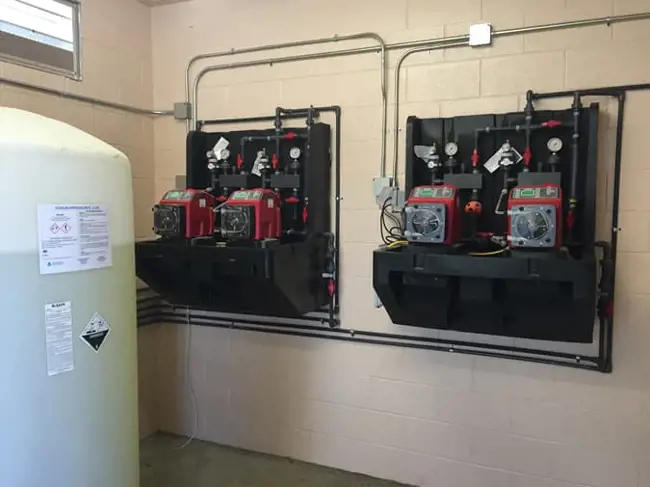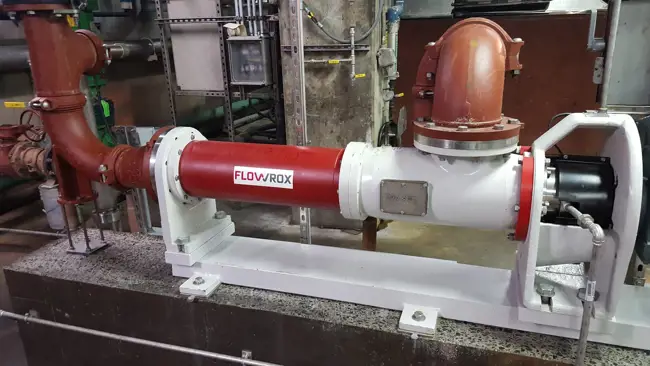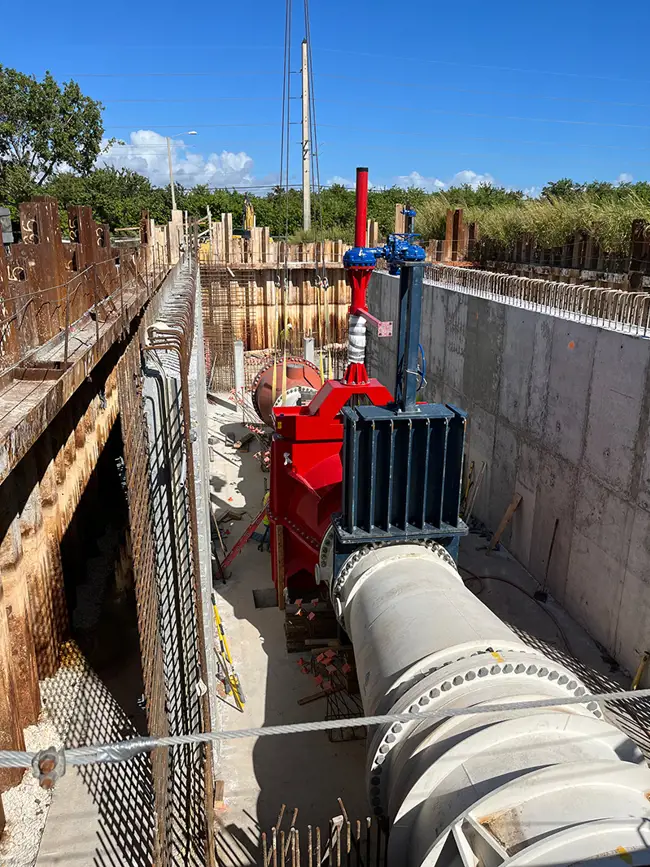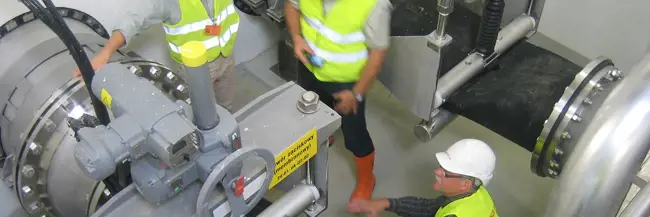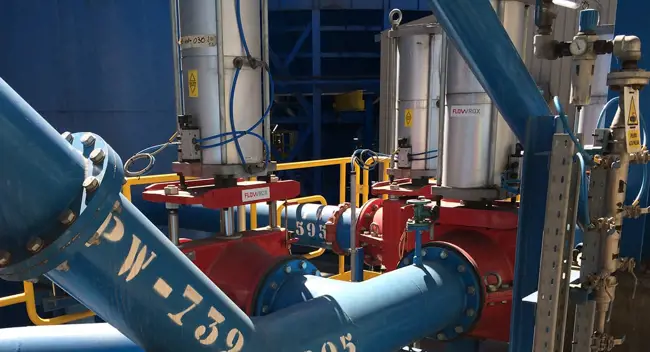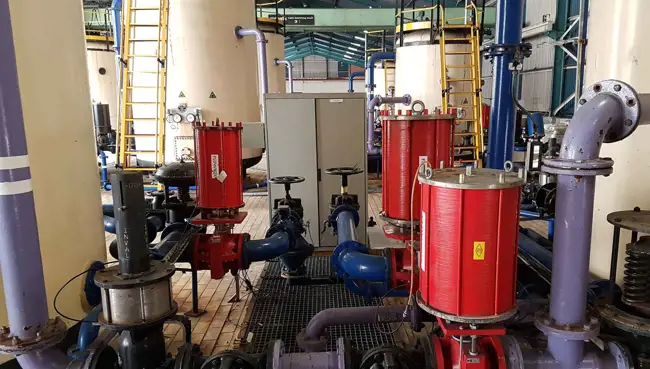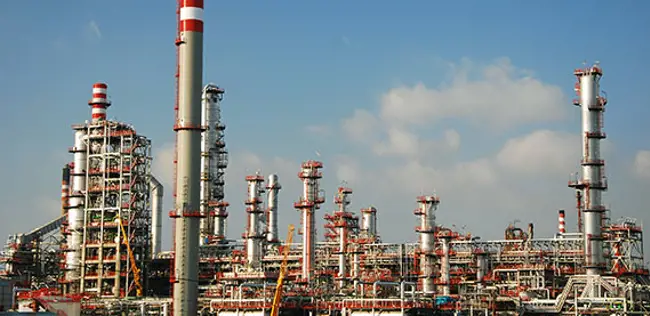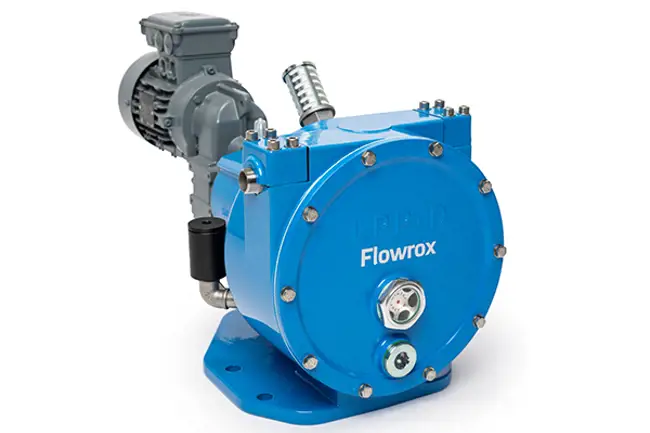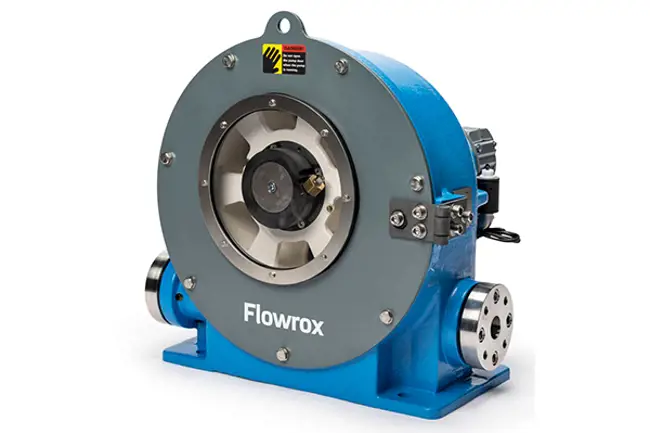How to pump wastewater treatment chemicals?
Apr 19, 2024
Municipal water treatment plants are demanding environments for chemical metering pumps
Wastewater treatment requires long-term and reliable operation from pumps and other equipment. Treating wastewater is a complicated process with many critical steps and a variety of different chemicals used to achieve the required water purity levels. The main chemical types used in wastewater treatment are pH neutralizers (acids and alkalis), anti-foaming agents (alcohols, glycols, oils, silicones, and stearates), coagulants (metallic salts or organic polymers), flocculants (polymers, which induce the settling of particles as larger flocs) and disinfectants (including sodium hypochlorite and hydrogen peroxide). Technical equipment for these processes must deal with chemicals with different pH levels, viscosity, material compatibilities and handling characteristics.
Optimal pumping
Controlled dosing of chemicals into the process stream – either to assist the treatment or to remove undesirable elements – is required in various wastewater treatment processes. Chemical dosing levels and speeds should be smoothly adjusted according to process monitoring. Efficient treatment improves overall performance and reduces costs. Selecting the optimal pumping solution for wastewater treatment therefore requires a knowledge of all the operating parameters.

Combined with accurate metering and a selection of different tube materials, Flowrox FXM pumps are the ultimate choice for chemical dosing applications requiring accurate metering.
Metering pumps
Metering pumps are user-friendly and ideal for chemical dosing applications because they offer accurate safe dosing with a selection of tube materials. Metering pumps are self-priming and equipped with versatile system connectivity, diverse programming options and controllability. Flowrox™ FXM pumps’ flowrate can be controlled either locally or remotely with 4-20mA, 0-10V, Ethernet or pulse signals. The tube bore’s positive
displacement with zero slip provides the same output volume in every cycle, and the tube’s compression point acts as a non-clogging self-cleaning check valve, providing a clear flow path with no possibility of a vapor lock.
Accurate dosing
Water treatment chemicals can be viscous, corrosive, abrasive or crystallizing media. Peristaltic pumps are designed for heavy-duty industrial applications. They are therefore optimal for such chemicals and for sludge transfer. They provide accurate dosing in all process conditions, as the pump discharge flow does not depend on the pipeline pressure. There is no variation due to the discharge pressure condition, and the output remains the same in every cycle. Flowrox LPP pumps’ single rolling design ensures gentle pumping action, eliminates friction, maximizes hose lifetime and reduces energy consumption. Peristaltic pumps are considered trouble-free due to their dry run capability, ability to perform well in negative suction conditions and minor service requirements. They are manufactured using durable elastomers and advanced materials, making them perfect for pumping a wide range of media. Continuous cooperation between the customer and supplier in the sizing and selection of the right metering pumps for the application ensures safe and efficient water treatment operation. Valmet offers prompt support, spare parts and services, maximizing the pump’s performance.
Text by Johanna Puranen, Technical product manager, Valmet Flow control business line. Text originally published in World Pumps magazine March/April 2024 Issue.

Johanna Puranen
Technical Product Manager, Elastomers
Related readings
Discover the product pages
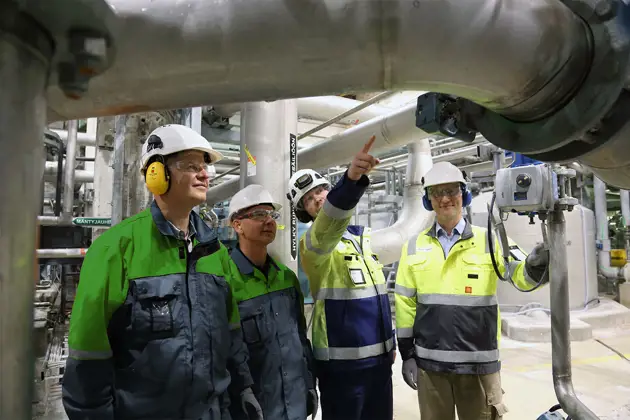
Subscribe to our newsletter
Subscribe now to our 'Go with the flow' newsletter and receive the latest insights directly to your email.
Subscribe